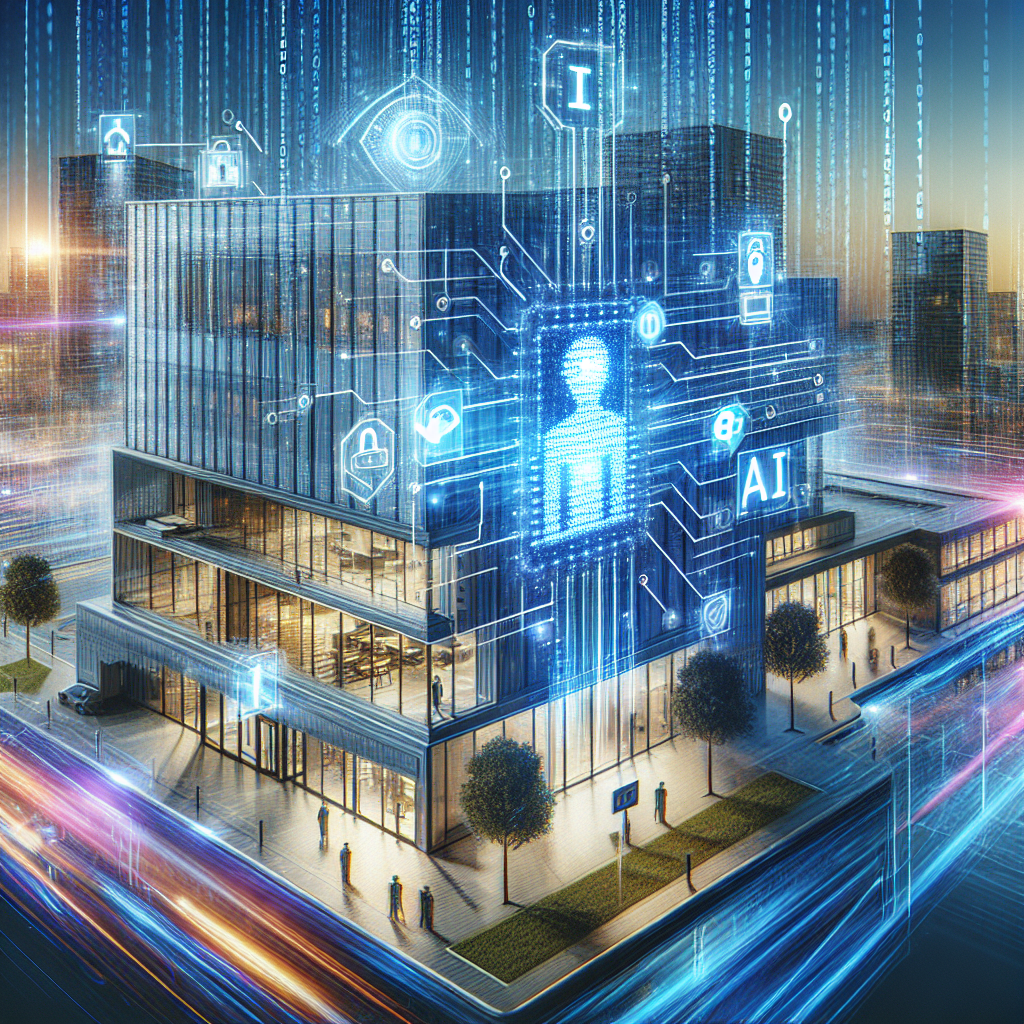Artificial Intelligence (AI) is revolutionizing the field of architecture in numerous ways, one of which is enhancing building security. With the rise of smart buildings and the Internet of Things (IoT), AI has become an essential tool for architects and building managers to ensure the safety and security of occupants. In this article, we will explore how AI is being used to enhance building security, the benefits it brings, and some frequently asked questions about the topic.
How AI Enhances Building Security
AI technology is being incorporated into building security systems to provide real-time surveillance, threat detection, and response capabilities. Here are some ways in which AI is enhancing building security:
1. Video Surveillance: AI-powered cameras can analyze live video feeds to detect suspicious behavior, such as unauthorized access or loitering. These cameras can also track individuals and objects in real-time, providing valuable data for security personnel.
2. Access Control: AI algorithms can be used to manage access control systems, such as keycard readers and biometric scanners. These systems can identify individuals based on facial recognition or other biometric data, allowing for secure access to restricted areas.
3. Intrusion Detection: AI can analyze sensor data from motion detectors, door sensors, and other security devices to detect potential intrusions. By using machine learning algorithms, AI can differentiate between normal and abnormal behavior, alerting security personnel when a threat is detected.
4. Predictive Maintenance: AI can be used to monitor the health of building security systems, predicting when maintenance is required to prevent system failures. This proactive approach helps to ensure that security systems are always operational and reliable.
5. Emergency Response: In the event of a security breach or emergency situation, AI can help to coordinate a rapid response by alerting security personnel, law enforcement, or emergency services. AI can also provide real-time updates and recommendations on how to best respond to the situation.
Benefits of AI in Building Security
The integration of AI into building security systems offers a wide range of benefits, including:
1. Enhanced Safety: AI technology can help to identify potential security threats before they escalate, ensuring the safety of building occupants and assets.
2. Improved Efficiency: AI-powered security systems can automate many tasks, such as monitoring video feeds and analyzing sensor data, allowing security personnel to focus on more strategic activities.
3. Cost Savings: By preventing security breaches and minimizing downtime, AI can help to reduce the costs associated with security incidents and system maintenance.
4. Scalability: AI-powered security systems can easily scale to accommodate the needs of large or complex buildings, providing a flexible and adaptive solution for building security.
5. Data Insights: AI can analyze vast amounts of security data to provide insights into patterns and trends, helping to improve security protocols and response strategies over time.
FAQs about AI in Architecture: Enhancing Building Security
Q: How does AI improve building security compared to traditional security systems?
A: AI-powered security systems can analyze data in real-time, detect patterns and anomalies, and provide predictive insights to enhance security measures. Traditional security systems rely on manual monitoring and reactive responses, which may not be as effective in preventing security threats.
Q: Is AI in building security a privacy concern?
A: AI-powered security systems that use facial recognition and other biometric data raise privacy concerns. However, by implementing strict data protection policies, encryption measures, and transparency in data usage, building owners can address privacy concerns and ensure compliance with regulations.
Q: How expensive is it to implement AI in building security?
A: The cost of implementing AI in building security can vary depending on the size and complexity of the building, the type of AI technology used, and the level of integration required. While initial costs may be higher than traditional security systems, the long-term benefits and cost savings may outweigh the investment.
Q: Can AI security systems be hacked?
A: Like any technology, AI security systems are vulnerable to hacking and cyber threats. Building owners should implement robust cybersecurity measures, such as encryption, firewalls, and regular security audits, to protect AI systems from unauthorized access and data breaches.
Q: What are the challenges of implementing AI in building security?
A: Some challenges of implementing AI in building security include the need for specialized skills and expertise, data privacy concerns, integration with existing security systems, and ensuring the reliability and accuracy of AI algorithms. Building owners should work with experienced AI developers and security professionals to address these challenges effectively.
In conclusion, AI is playing a crucial role in enhancing building security by providing real-time surveillance, threat detection, and response capabilities. The integration of AI into building security systems offers numerous benefits, including enhanced safety, improved efficiency, cost savings, scalability, and data insights. While there are challenges to implementing AI in building security, building owners can address them by working with experienced AI developers and security professionals. By leveraging the power of AI technology, architects and building managers can ensure the safety and security of occupants in an increasingly complex and interconnected built environment.

